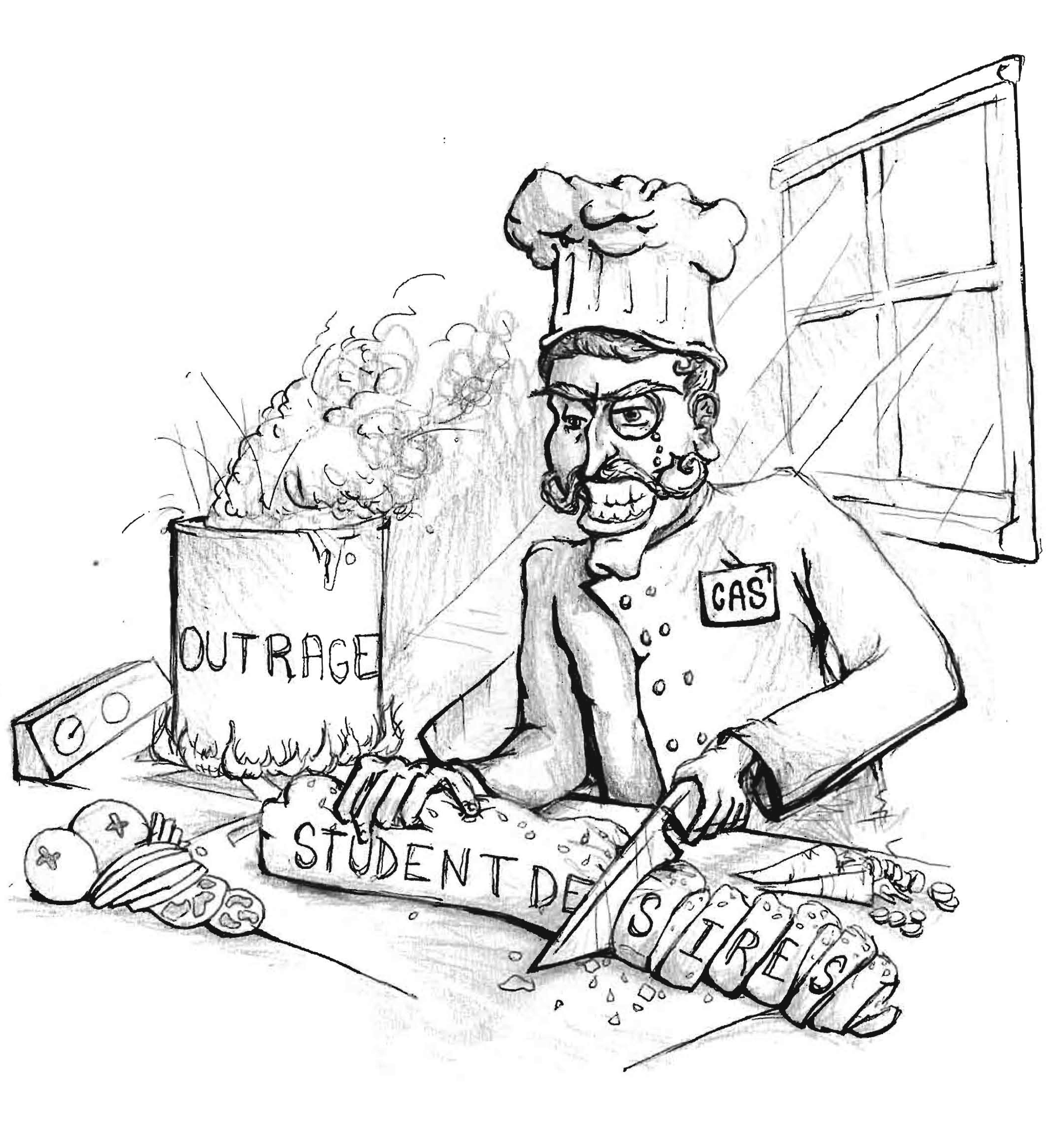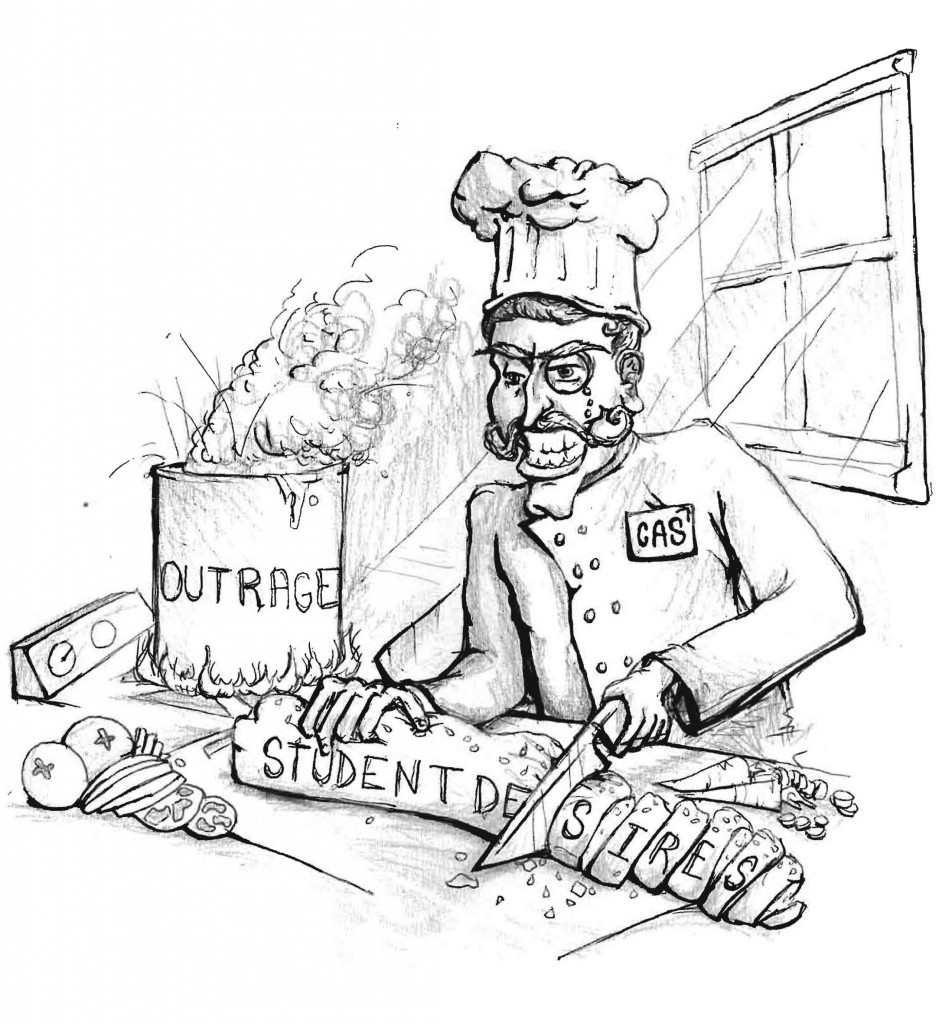
The saga between the Campus Auxiliary Services (CAS) Board and student representatives has climaxed.
At the March 13 meeting of the CAS Board, students refused to leave after the board called for an executive session. This resulted in the board calling for University Police to escort students out of the college terrace. The end product was no product, as the time spent trying to get students out of the meeting took away from the time the board would have spent deciding on which food vendor would serve SUNY New Paltz for the next several years.
While we understand why the CAS Board decided to call an executive session, we at The New Paltz Oracle frown upon the board’s decision to call the police in order to get students to leave. The actions taken by the board further perpetuate the idea that even when there are matters where student enrichment is the primary concern, the student voice is not the most important one.
This all started at the beginning of the school year. Last September, the board turned down a motion made to increase student representation to the maximum 50 percent. Since then, we have seen time and time again the difficulty student representatives have in making a difference. Any time there is an issue where student representatives believe the best interests of the student body are not being met, they are consistently voted down 6-4.
At the food vendor interviews held in February, students were turned away without any knowledge that they would not be allowed into the meetings. While videos of each interview were put on CAS’s website within the next several days, there was no room for students to voice concern after the event. Board members had no way of hearing student concerns or inquiries where individual vendors were concerned.
And then at Wednesday’s meeting, after a 6-4 motion to keep the time for public comment at the bare minimum, students were informed that they would not be permitted to hear what the board had to say about each vendor. And here we find ourselves in a cycle of stagnation.
CAS’s decision to go into executive session is valid. While we do believe in being accountable for what you say and voice into the ether, issues concerning contractual agreements and individual employees are sensitive and are deserving of an honest and candid discussion. However, what we discovered on Wednesday is that it is far too easy for the student voice to be forced into silence.
There was no need for the cops to be called. The CAS Board has allowed student discontent from the start. There should be no surprise from any member of the CAS Board that students were so infuriated they refused to leave Wednesday’s meeting. Student displeasure and protest is something we believe the board has brought entirely on themselves.
What we find most troubling is that even when we as students voice our concerns, we never see progress. We’ve come to learn that with four representatives on the board, we hardly have a voice to begin with.
Non-student representatives on the board have said in the past that they fear a shift in power and that the student voice will overpower administration and faculty. However, it is clear that faculty and administration will always vote together and leave students voiceless. A majority group like the non-student representatives on the board must take care to make sure they are not denying the minority a chance to make change.
While administrators have said students had multiple chances to voice their concerns through focus groups and forums, we are reminded by consistent 6-4 votes that student voices mean nothing when it matters. Our student leaders are intelligent and tireless in their dedication to educating themselves on the Request for Food Proposal (RFP) and on each individual food provider. No exuberant amount of focus groups or surveys can give a board an understanding of the group they are tasked to serve the same way those who coexist in that group can give.
With several weeks before what we hope will be an eventual choice instead of a default decision, we hope that the CAS Board will try to give students more of a voice and chance to speak than they have in the past.

